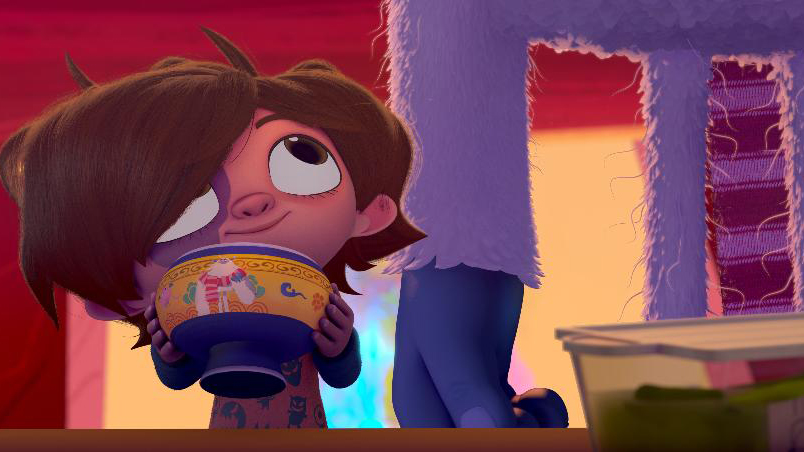Catalonia Animation Further Growth – Variety
Validated at Cannes by a U.S. sale to Neon for Pablo Berger’s “Robot Dreams,” Catalan animation is on a roll – thanks to ambitious creatives muscular state funding, cutting edge talent and diverse stories that captivate global audiences.
“Catalonia’s long had a strong tradition of important animation production companies, which developed ambitious projects,” Edgar Garcia, general director of Catalan cultural company agency ICEC, told Variety.
“Over the years, this resulted in the creation of smaller studios with highly qualified professionals on the creative and technical sides. Those studios and professionals are now working for productions all over the world,” he added.
Garcia points to a dedicated ICEC fund for animation, features and series, with a €4.5 million ($4.9 million) budget for 2023. Of course, we believe this support scheme reflects the quality and creativity of Catalan animation, but has also helped nurture it. As the whole of the audiovisual production in Catalonia, animation is also living a highly vibrant moment and has become one of the flagships of our industry.”
Further animation funds come from an ICEC film fund. As in 2022, ICEC 2023 allocated audiovisual funding will be just over €41 million ($45.5 million). That compares to €12.6 million ($14.0 million) in 2019.
On top of animation-specific spending, the Institute has a €1.5 million ($1.6 million) development fund for early-stage fiction, animation and documentary features and series for theatrical or broadcast release alongside a €400,000 ($436,000) short film fund and €1.8 million ($2.0 million) minority co-production fund for fiction, animation and documentary projects intended for theatrical release.
Dynamic producers also benefit the region, organizing events like Animar BCN, that unite key players to promote the European animation industry while stimulating reflection, debate and collaboration.
At last year’s Cartoon Forum, Catalonia’s GoldBee Entertainment was named Investor-Distributor of the Year while indie production house Peekaboo Animation claimed its Producer prize.
This year, Pablo Berger’s delicate friendship study “Robot Dreams,” backed by Arcadia Motion Pictures (“The Beasts”), won a Cannes special screening slot while Alba Sotorra-produced “Rock Bottom,” exploring 70s counterculture, was selected for Cannes’ Annecy Goes to Cannes.

David Matamoros, Angeles Hernandez, Edgar Garcia Casellas, Eduardo Escudero
Courtesy of Mr. Miyagi Films/ICEC
The region is further preparing for Annecy and its MIFA market with three feature films selected, one short and two projects picked up for the official pitch.
If growing accolades from the festival circuit are any indication, the region’s set for further expansion. The consolidation of production has led to a thriving Catalan animation ecosystem with production houses like Barcelona’s Mr. Miyagi Films, behind recently released “Hannah and the Monsters” and upcoming “Juul,” and Spanish indie production-distribution house A Contracorriente Films, on board for “The Inseparables,” offering boundary-pushing content, from a lens widened by experience and diversity.
“Many years of working in international markets, at the level of co-production, service or sales, provides a background in a creative and industrial context that lends a differential value in terms of the treatment of stories, ambition and the belief that there are no borders,” States David Matamoros of Mr. Miyagi Films. “Not believing that borders exist is where proposals with a singular, local but global scope are born, with distinctive narratives but at the same time diverse, plural, universal,”
Mr. Miyagi’s Angeles Hernández, points out that “Any boom experienced in the sector is due to the fact that talent’s being grown thanks to schools and the experience obtained in productions with support of a policy that looks much further and sees in animation a true industrial sector bringing incredible wealth to the territory, with employment of younger demographies and long-term qualified work.”
“Series have led to a very interesting generation that challenges the world of cinema, without complexities and even more so with a new feminine perspective on the industry and content.”
While funding is key, co-production models are ever-attractive and flexibility is sought as the industry evolves.
“Catalonia has become one of the poles of the animation industry in our country, to a large extent, due to the great commitment that [Catalan public broadcaster] Televisió de Catalunya has been making. That makes it, together with RTVE, one of the most relevant broadcasting partners in this field,” states Eduardo Escuerdo, business director for A ContraCorriente Films.
He suggests that “both family and adult animation can benefit from all the best of the international co-production model” and states that “given the high budgets that these works require, it would be appreciated if certain criteria were made even more flexible in a way that would allow more, and better, co-production. We have plenty of talent.”
Sotorra, who heads her namesake indie production house, additionally points to favorable gains in the years since COVID began, that made producing animated projects a fortuitous endeavor.
“I believe the pandemic is partly responsible for this boom in animation. For many months, until relatively recently, a fiction shoot implied a very high risk for the producers because a covid outbreak could paralyze everything. Animation, on the other hand, can be worked on in a decentralized way which means that processes are not at risk in times of a pandemic,” she stated.
Adding that: “Animation opens up a very stimulating creative world for producers and I think that one of the important factors stems from the desire to be involved in creative projects of high artistic value, where imagination can fly without limits.”

Robot Dreams
Credti: Arcadia Motion Pictures

